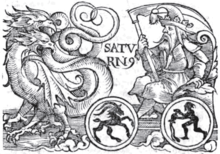ORGANIZATIONAL ORIENTATIONS AND COMMUNICATION TRAITS (part B)
by
Charles Lamson
Indifferents. The indifferent type is as easily recognizable as the upward mobile. These people make up a large portion of the employees in most organizations.
Whereas the upward mobile lives to work, the indifferent is working because he or she has to. People have to make a living, they have to buy groceries, they want to make a better life for their children. Many people are motivated to work beyond their basic needs for survival. However, indifferents work only to satisfy their very basic needs, or the basic needs of their loved ones. This is not to say that they are evil or mean - they are simply not interested in the job or the organization. They are only in it for the paycheck.
These people will avoid participation in the daily organizational routines, They rarely share in the rewards the system has to offer, They are not highly satisfied with their jobs, and they rarely do any extra work without compensation. They would never volunteer to do extra work if the only reward was self-satisfaction. These people simply come to work, do their job, and go home.
Much of their communication on the job is about their family or personal life. When encouraged to communicate about organizational matters with colleagues, they generally say nothing, change the topic, or suggest that others should discuss those matters. They are not dedicated or upwardly mobile in any aspect. Hence, if you work with one of these people or have one for a supervisor, depend on yourself. These people will never do more than what is absolutely necessary. Again, they are not evil, they are not a threat to others. They may even be very nice people. But they are in the organization to do their job and be left alone. Every organization needs these people because they can be assigned to do menial and routine tasks that require little thought, and others would resent doing. They do not resent those tasks. After all, it is a job and a paycheck - and such tasks do not require a personal commitment.

Getting along with indifferents in the organization usually is not difficult as long as you do not push them to give their all for the organization or your unit in it. They are indifferent to their work, but that does not mean they do not care about anything. They can be very interested in things outside the work environment. Talk with them about their family, what they plan to do over the weekend, where good spots are for fishing, the local team in the sport that is in season, where to go for a vacation - what most people refer to as "small talk." Serious talk about work is not the indifferent's cup of tea.
Ambivalents. the final organizational type is perhaps is the most difficult to work with, because they are unpredictable Although many of the personality orientations we have discussed so far are not necessarily likable, they are at least predictable - this type is not. They are the ambivilents. The ambivalent is both creative and anxious. The upward mobiles like the status quo, and the indifferents accept it, The ambivilents want to change it.
The ambivalents are never truly comfortable in any organization. They may take a position because it seems to be what they want, But within a few months, they have found a number of problem areas that need changing. They cannot seem to accept organizations, or the people within them, for what they are. These people can be supportive one day and attacking the next. They are moody, which makes it difficult for people to work with or for them, Chances are they will not stay in any one organization for more than a few years. After a while, they feel they have done all they can do and must change positions, or they get disgruntled with the system and change jobs.
Although ambivalents often are quite intelligent and highly skilled verbally, they reject the authority structure, and will often try to turn others against the organization and the supervisors within it. They will openly criticize the system. Some of their criticism might be useful, but because of the way it is said, others reject it. Most systems are happy when ambivalents go. These are the people for whom the go-away party is held the day after they leave.
Communicating with ambivalents can be difficult, since you seldom know how they will react to ideas. about the only safe topic is criticism of the organization. Gripe sessions get ambivalents' blood churning. However, entering such conversations can be dangerous. You may find yourself quoted the next time the ambivalent decides to take on the organization or the supervisor. The best advice is to stick with small talk with the ambivalents.
*SOURCE: ORGANIZATIONAL COMMUNICATION FOR SURVIVAL 3RD ED. BY VIRGINIA P. RICHMOND, JAMES C. MCCROSKEY AND LINDA L. MCCROSKEY; PGS. 86-87*
END
|

No comments:
Post a Comment